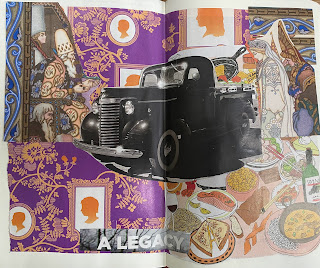Day 74 – Racism and one Nuyorican family – the story of my hair
| me, my Dad and my brother 1978 |
I have wanted to write about my experience of racism and colorism growing up for a long time. I feel as though this is a story, a part of my history, that is so important and yet holds a lot of shame, and other aspects that have not been well processed. I have sort of stayed away from it because of the shame and the feeling that it will be difficult to detangle the threads. Like growing up with “kinky” hair, there is a lot of internalized racism that has followed this part of my story.
My mother did not know how to manage my hair – she was always trying to straighten it and always telling me that I looked like I had a mop on my head. Growing up, she criticized me for my hair, and insisted on cutting it and keeping it short, and even still, there was many a night where I went to bed crying after a shampoo and hair-combing session!
The tangles and frizz that I had growing up was never celebrated as curls and body – rather it was a source of shame. It was the part of my appearance that immediately connected me to my African roots. Puerto Ricans are a mixed-race group of people. We have Spanish, Indigenous, and African ancestry (more about this later). My mother was deeply ashamed of my hair, and I internalized a lot of that shame.
There was a very mixed message about feminism and beauty in my family – my maternal grandmother was proudly “beautiful” as a young and middle-aged woman. For her, your looks were everything, and they were certainly your source of power, if you were a woman. Your choice and ability to get the right husband meant the difference between poverty and means, and abuse or being cared for – benevolent paternalism was the best that could be hoped for.
My mother had married my father, with green eyes, and white complexion, making her choice a “good one.” While colorism was not as talked about in my father’s family, he and his siblings with their white skin and light eyes often “passed” as White. When my mother had an episode of Bell’s palsy during her third trimester of her pregnancy with me, this had a major effect on her appearance and both her feelings about her appearance, as well as my father’s feelings about it.
For many years, I hated my hair, and wished I had straighter and finer hair. My hair was kinky and coarse. I didn’t tie these feelings to internalized racism for a long time. I tied it to my relationship with my mom, to more standard American ideals of beauty, and to my own feelings of self-esteem.
It wasn’t until I was an adult, and I had my own children that I realized that my hair was something of which I could be proud, especially as it felt like evidence of my ethnic background, and my understanding of myself as a “person of color,” and a “curly-haired woman.” I could proudly understand my hair as rooting me in my Puerto-Rican-ness. I never had to question that even though I eschewed a lot of other aspects of stereotypical Latina feminine identity, my hair would always make me a Puerto Rican.
Ironically, after menopause, my hair has become finer and straighter. It’s also longer – which makes it straighter, but it’s something I don’t quite recognize about myself, not being a frizzy haired, kinky haired person. It’s something I’m still trying to come to terms with!



Comments